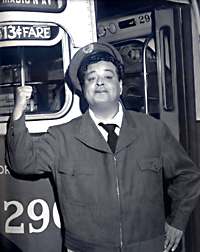Post by macrockett on Nov 16, 2009 12:27:39 GMT -6
www.ilga.gov/legislation/ilcs/ilcs3.asp?ActID=84&ChapAct=5%26nbsp%3BILCS%26nbsp%3B120%2F&ChapterID=2&ChapterName=GENERAL+PROVISIONS&ActName=Open+Meetings+Act.
winsome.cnchost.com/MAC/OMA_GuidelinesToIllinoisOMA_AG.pdf
winsome.cnchost.com/MAC/OMA_RequirementsOfTheIllinoisOMA_IASB.pdf
GENERAL PROVISIONS
(5 ILCS 120/) Open Meetings Act.
(5 ILCS 120/1) (from Ch. 102, par. 41)
Sec. 1. Policy. It is the public policy of this State that public bodies exist to aid in the conduct of the people's business and that the people have a right to be informed as to the conduct of their business. In order that the people shall be informed, the General Assembly finds and declares that it is the intent of this Act to ensure that the actions of public bodies be taken openly and that their deliberations be conducted openly.
The General Assembly further declares it to be the public policy of this State that its citizens shall be given advance notice of and the right to attend all meetings at which any business of a public body is discussed or acted upon in any way. Exceptions to the public's right to attend exist only in those limited circumstances where the General Assembly has specifically determined that the public interest would be clearly endangered or the personal privacy or guaranteed rights of individuals would be clearly in danger of unwarranted invasion.
To implement this policy, the General Assembly declares:
(1) It is the intent of this Act to protect the citizen's right to know; and
(2) The provisions for exceptions to the open meeting requirements shall be strictly construed against closed meetings.
(Source: P.A. 88‑621, eff. 1‑1‑95.)
(5 ILCS 120/1.02) (from Ch. 102, par. 41.02)
Sec. 1.02. For the purposes of this Act:
"Meeting" means any gathering, whether in person or by video or audio conference, telephone call, electronic means (such as, without limitation, electronic mail, electronic chat, and instant messaging), or other means of contemporaneous interactive communication, of a majority of a quorum of the members of a public body held for the purpose of discussing public business or, for a 5‑member public body, a quorum of the members of a public body held for the purpose of discussing public business.
Accordingly, for a 5‑member public body, 3 members of the body constitute a quorum and the affirmative vote of 3 members is necessary to adopt any motion, resolution, or ordinance, unless a greater number is otherwise required.
"Public body" includes all legislative, executive, administrative or advisory bodies of the State, counties, townships, cities, villages, incorporated towns, school districts and all other municipal corporations, boards, bureaus, committees or commissions of this State, and any subsidiary bodies of any of the foregoing including but not limited to committees and subcommittees which are supported in whole or in part by tax revenue, or which expend tax revenue, except the General Assembly and committees or commissions thereof. "Public body" includes tourism boards and convention or civic center boards located in counties that are contiguous to the Mississippi River with populations of more than 250,000 but less than 300,000. "Public body" includes the Health Facilities and Services Review Board. "Public body" does not include a child death review team or the Illinois Child Death Review Teams Executive Council established under the Child Death Review Team Act or an ethics commission acting under the State Officials and Employees Ethics Act.
(Source: P.A. 95‑245, eff. 8‑17‑07; 96‑31, eff. 6‑30‑09.)
---------------------------------------------------------
winsome.cnchost.com/MAC/OMA_GuidelinesToIllinoisOMA_AG.pdf (see page 13 below)
2. WHAT MEETINGS MUST BE OPEN?
A. Types of Bodies Covered.
The Act applies whether the public body is State or local, administrative or advisory,
executive or legislative, paid or unpaid. 5 ILCS 120/1.02. Home rule units are specifically
required to comply with the Act. A home rule unit cannot adopt weaker standards, although it
"may enact an ordinance prescribing more stringent requirements binding upon itself which
would serve to give further notice to the public and facilitate public access to meetings." 5 ILCS
120/6.
The Act applies only to public bodies. It does not apply to private, not-for-profit
corporations, even though such corporations administer programs funded primarily by
governmental agencies and are required to comply with government regulations, if the boards of
directors and employees of such corporations are free from direct governmental control.
Rockford Newspapers, Inc. v. Northern Illinois Council on Alcoholism and Drug Dependence, 64
Ill. App. 3d 94 (Second Dist. 1978); see also Hopf v. Topcorp, Inc., 170 Ill. App. 3d 85, 91 (First
Dist. 1988).
Questions frequently arise about whether the Act covers meetings of various subgroups,
such as committees, subcommittees and advisory bodies. The answer is yes. The statute applies
to "any subsidiary bodies of any of the foregoing [public bodies] including but not limited to
committees and subcommittees which are supported in whole or in part by tax revenue, or which
expend tax revenue." 5 ILCS 120/1.02. This language should not be interpreted to create an
exception for other groups, such as advisory committees or subcommittees which do not spend or
use tax revenue; they, too, are covered. Ill. Att'y Gen. Op. No. NP-585, issued May 22, 1973;
1972 Ill. Att'y Gen. Op. 177; see also 1971 Ill. Att'y Gen. Op. 51.
winsome.cnchost.com/MAC/OMA_GuidelinesToIllinoisOMA_AG.pdf
winsome.cnchost.com/MAC/OMA_RequirementsOfTheIllinoisOMA_IASB.pdf
GENERAL PROVISIONS
(5 ILCS 120/) Open Meetings Act.
(5 ILCS 120/1) (from Ch. 102, par. 41)
Sec. 1. Policy. It is the public policy of this State that public bodies exist to aid in the conduct of the people's business and that the people have a right to be informed as to the conduct of their business. In order that the people shall be informed, the General Assembly finds and declares that it is the intent of this Act to ensure that the actions of public bodies be taken openly and that their deliberations be conducted openly.
The General Assembly further declares it to be the public policy of this State that its citizens shall be given advance notice of and the right to attend all meetings at which any business of a public body is discussed or acted upon in any way. Exceptions to the public's right to attend exist only in those limited circumstances where the General Assembly has specifically determined that the public interest would be clearly endangered or the personal privacy or guaranteed rights of individuals would be clearly in danger of unwarranted invasion.
To implement this policy, the General Assembly declares:
(1) It is the intent of this Act to protect the citizen's right to know; and
(2) The provisions for exceptions to the open meeting requirements shall be strictly construed against closed meetings.
(Source: P.A. 88‑621, eff. 1‑1‑95.)
(5 ILCS 120/1.02) (from Ch. 102, par. 41.02)
Sec. 1.02. For the purposes of this Act:
"Meeting" means any gathering, whether in person or by video or audio conference, telephone call, electronic means (such as, without limitation, electronic mail, electronic chat, and instant messaging), or other means of contemporaneous interactive communication, of a majority of a quorum of the members of a public body held for the purpose of discussing public business or, for a 5‑member public body, a quorum of the members of a public body held for the purpose of discussing public business.
Accordingly, for a 5‑member public body, 3 members of the body constitute a quorum and the affirmative vote of 3 members is necessary to adopt any motion, resolution, or ordinance, unless a greater number is otherwise required.
"Public body" includes all legislative, executive, administrative or advisory bodies of the State, counties, townships, cities, villages, incorporated towns, school districts and all other municipal corporations, boards, bureaus, committees or commissions of this State, and any subsidiary bodies of any of the foregoing including but not limited to committees and subcommittees which are supported in whole or in part by tax revenue, or which expend tax revenue, except the General Assembly and committees or commissions thereof. "Public body" includes tourism boards and convention or civic center boards located in counties that are contiguous to the Mississippi River with populations of more than 250,000 but less than 300,000. "Public body" includes the Health Facilities and Services Review Board. "Public body" does not include a child death review team or the Illinois Child Death Review Teams Executive Council established under the Child Death Review Team Act or an ethics commission acting under the State Officials and Employees Ethics Act.
(Source: P.A. 95‑245, eff. 8‑17‑07; 96‑31, eff. 6‑30‑09.)
---------------------------------------------------------
winsome.cnchost.com/MAC/OMA_GuidelinesToIllinoisOMA_AG.pdf (see page 13 below)
2. WHAT MEETINGS MUST BE OPEN?
A. Types of Bodies Covered.
The Act applies whether the public body is State or local, administrative or advisory,
executive or legislative, paid or unpaid. 5 ILCS 120/1.02. Home rule units are specifically
required to comply with the Act. A home rule unit cannot adopt weaker standards, although it
"may enact an ordinance prescribing more stringent requirements binding upon itself which
would serve to give further notice to the public and facilitate public access to meetings." 5 ILCS
120/6.
The Act applies only to public bodies. It does not apply to private, not-for-profit
corporations, even though such corporations administer programs funded primarily by
governmental agencies and are required to comply with government regulations, if the boards of
directors and employees of such corporations are free from direct governmental control.
Rockford Newspapers, Inc. v. Northern Illinois Council on Alcoholism and Drug Dependence, 64
Ill. App. 3d 94 (Second Dist. 1978); see also Hopf v. Topcorp, Inc., 170 Ill. App. 3d 85, 91 (First
Dist. 1988).
Questions frequently arise about whether the Act covers meetings of various subgroups,
such as committees, subcommittees and advisory bodies. The answer is yes. The statute applies
to "any subsidiary bodies of any of the foregoing [public bodies] including but not limited to
committees and subcommittees which are supported in whole or in part by tax revenue, or which
expend tax revenue." 5 ILCS 120/1.02. This language should not be interpreted to create an
exception for other groups, such as advisory committees or subcommittees which do not spend or
use tax revenue; they, too, are covered. Ill. Att'y Gen. Op. No. NP-585, issued May 22, 1973;
1972 Ill. Att'y Gen. Op. 177; see also 1971 Ill. Att'y Gen. Op. 51.




